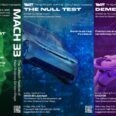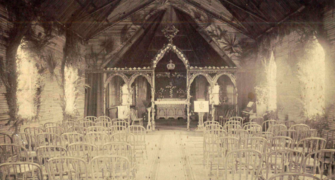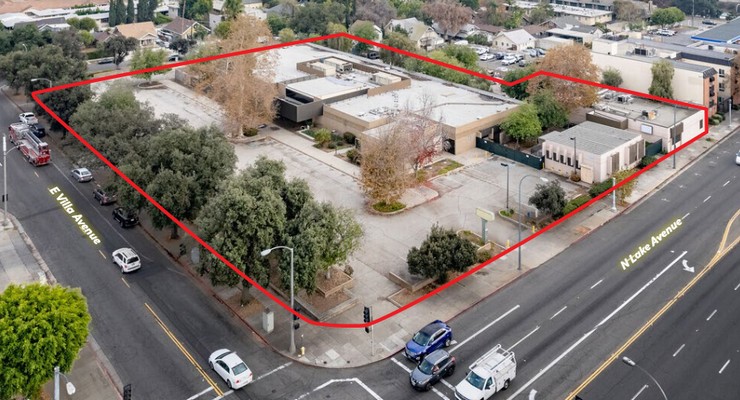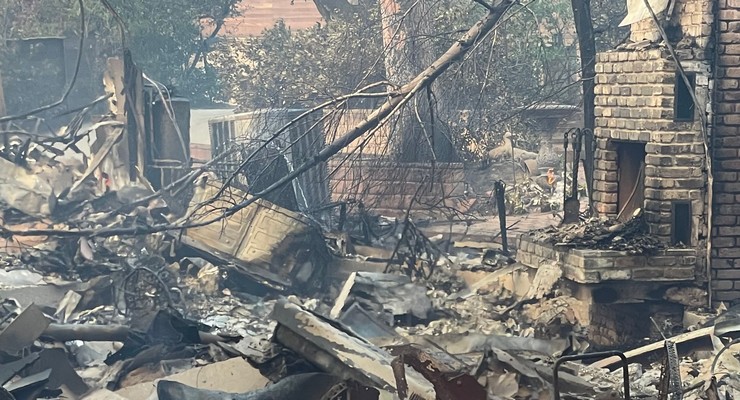
In commemoration of the 100th anniversary of its sanctuary, All Saints Church, an Episcopal institution in Pasadena, has unveiled a comprehensive report that delves into the history of the land upon which the church stands.
The report, a statement by All Saints Church said, offers “an honest look at the history of the land,” from its original indigenous inhabitants, the Tongva people, through multiple waves of colonization, to how All Saints Church itself purchased and has used the land.
The statement said the landmark report has been meticulously reviewed by Tongva members and local historians and sheds light on the complex historical context inherited by the church. It candidly addresses issues like the colonization and tragic fate of the Tongva people, alongside the ecological consequences of land development in the region.
It also scrutinizes instances where All Saints Church played an active role, including the demolition of housing on its property and the acquisition of residential real estate in historically exclusive neighborhoods.
“Colonization and injustice towards the land and its inhabitants is not just a few one-time events hundreds of years ago, but an on-going process lasting into the present day,” Hannah Earnshaw, co-convener of the working group and co-author of the report, said. “There are aspects of that which our church has directly participated in, which is particularly important to acknowledge – both to own up to our culpability, and also to recognize that we have the agency to make changes and take action for the better.”
Reverend Mike Kinman, Rector of All Saints Church, went beyond a simple land acknowledgment aiming to comprehensively understand the intricate relationship between the church, the land it occupies, and its past inhabitants.
“Reconciliation is literally a sacramental process with five specific steps,” Kinman explains in the report’s introduction.
In 2021, Kinman formed a working group to explore the project called “Telling The Whole Story: The Land We Are On,” tasked with investigating the history of the land currently occupied by All Saints Church, starting from the Tongva people who originally lived in the region now known as the Los Angeles Basin through to the present day. The group’s work included examining All Saints Church’s archival materials, speaking with local Tongva groups, and incorporating existing research on the history of the area.
Many institutions across the United States have taken steps to recognize the significance of acknowledging the indigenous heritage of the land they occupy. The Episcopal Church at large adopted a resolution in 2022 encouraging dioceses to engage with their indigenous neighbors and incorporate land acknowledgments into their worship.
Becky Nicolaides, a historian specializing in the history of the Los Angeles area and co-author of the report, said uncovering the history of the land was “both revealing and heartbreaking.”
“The mistreatment of the Tongva people and the seizing of their land represented a tremendous moral transgression over generations,” Nicolaides said. “One of the most gratifying parts of the work was the opportunity to interview Tongva historian Edgar Perez, to hear his personal story and his insights on how this history continues to reverberate among the Gabrielino/Tongva people in our own time.”
The report completes the first step in the process of confronting the history of All Saints Church’s land. In the future, it will serve as an invaluable resource for an ad hoc group of All Saints Church leadership whose mission would be to identify and execute actions that not only acknowledge this history but also initiate steps to rectify past injustices.
On Oct. 8, All Saints Church launched its year-long “Centennial Journey: Engaging Our Past, Growing into God’s Future,” which celebrates the centennial of the laying of the cornerstone for its iconic church building at 132 N. Euclid Ave. in Pasadena.
To access the full report and delve into the intricate history of All Saints Church’s land, visit https://allsaints-pas.org/ministries/ttws-land-working-group/.














 5 comments
5 comments



